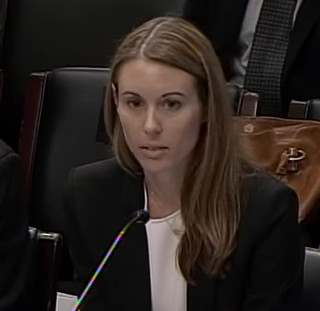August 31, 2016
August 2016 at Policy Integrity: Court Rules on Social Cost of Carbon; Brief for Ozone Case; Hein Congressional Testimony; Regulating Toxic Chemicals; New Paper on Global Social Cost of Carbon
-

Court Rules on Social Cost of Carbon
An August 2016 federal court ruling may have paved the way for a new chapter in economically efficient U.S. climate policies, and our brief for the case was acknowledged in the judges’ opinion. The U.S. Court of Appeals for the Seventh Circuit sided with the Department of Energy (DOE) in a challenge to the agency’s energy efficiency standards for commercial refrigerators, and the judges upheld DOE’s use of the social cost of carbon (SCC) in its analysis of the regulation. The SCC is the U.S. government’s official estimate of the economic damage caused by each ton of carbon pollution, and this marks first time that a court has ruled on the legality of an agency’s use of the tool. The judges acknowledged Policy Integrity’s brief and adopted reasoning consistent with many of our brief’s arguments about the SCC, while rejecting a host of arguments that are often used to challenge rules that reduce emissions. The government’s brief was limited by word count and needed to address a number of other topics, so Policy Integrity’s brief was the only one to address most SCC issues. As a result of this ruling, other federal agencies will likely be more confident in using the SCC, which could greatly increase the economic efficiency of rules that reduce carbon pollution.
-

Hein Congressional Testimony, Offshore Leasing Update
Jayni Hein recently testified at a House Natural Resources Committee hearing on the “Innovation in Offshore Leasing Act.” The hearing, held by the Subcommittee on Energy and Mineral Resources, focused on H.R. 5577, a bill that would amend the Outer Continental Shelf Lands Act to allow internet-based offshore oil and gas lease sales, among other measures. Hein’s testimony suggested that the Department of the Interior (DOI) should continue to increase transparency and public participation in the offshore leasing process; improve the regulations that underlie the Bureau of Ocean Energy Management’s five-year planning process; build on recent progress addressing environmental, social, and economic uncertainty in its five-year Program and lease sales; and advance efforts to account for the environmental and social costs of fossil fuel leasing through royalty rate and other fiscal reform. Among other recommendations, Hein suggested that DOI offer fewer tracts for lease at a time, to foster more competition and increase the public return from bids. This recommendation seems especially relevant given the low level of interest in offshore drilling rights at recent auctions. Video of the hearing is available here.
-

Brief for Ozone Rule Case
In early August, we submitted an amicus brief in support of the EPA in Murray Energy v. EPA, a case challenging the agency’s revised ozone standards. The petitioners argue that the costs of compliance are overly burdensome. But our brief shows that objections to the standard on cost-benefit analysis grounds are without merit, and if the EPA did consider costs and benefits, a more stringent standard would have been chosen. We argue that the court should uphold the new standard.
-

Regulating Toxic Chemicals
On August 25-26, Richard Revesz co-chaired a meeting focused on methods to improve toxic chemical regulation. The meeting brought together scientists, government officials, and policy experts to discuss how cost-benefit analysis might be used to improve decisionmaking around toxic chemical oversight. The group focused on uncertainty, thresholds, and preferences in the benefits analysis for toxic chemicals, and worked to generate specific recommendations to improve this analysis, and to develop concrete next steps for research and analysis of toxic chemical regulations.
-

New Paper on Global Social Cost of Carbon
In a newly released paper, Peter Howard and Jason Schwartz defend a continued focus on the global effects of U.S. climate policy, drawing on legal, strategic, and economic arguments. U.S. climate regulations present a special case of federal agencies applying a global, rather than exclusively domestic, perspective to the costs and benefits in their regulatory impact analyses. Since 2010, federal agencies have emphasized global valuations of climate damages for policies that affect carbon dioxide emissions, using the social cost of carbon metric. Yet lately, these global metrics have come under attack in courtrooms and academic journals, where opponents have challenged the statutory authority and economic justification for global values. The paper presents several strong justifications for a global focus, including international reciprocity, longstanding legal authority, and economic spillovers.
